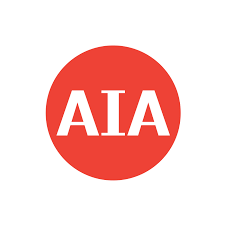DART preparing for budget cuts as Des Moines commits to additional funds


Leaders at Des Moines Area Regional Transit Authority are continuing to fine-tune budget proposals they hope will soften the impact of cuts on its customers, while absorbing a shortfall that will force the transit agency to reduce services by 20% to 25%.
The DART Board of Commissioners held a budget work session last week where they reviewed budget options and how those options would affect services to the communities served by DART.
Among the possible cuts are reducing the frequency some routes operate, decreasing the hours customer service is open, elimination of free Wi-Fi on DART buses, and reductions in staff.

Amanda Wanke, DART’s CEO, called the decision to cut services “heartbreaking.”
“We’ve worked really hard to put service on the streets that meets the needs of our community and our riders,” she said. “We know we’re not alone in facing these difficult challenges. I’ve heard conversations from other public entities where revenues aren’t keeping pace with the costs of providing service. It is really hard decisions. There is no easy decision, and we have done our best to focus on service where we can.”
The cuts come as demand for service increases, she said.
“We know there are places that need more, and we hear that day in and day out,” Wanke said. “It’s extremely difficult, but yet I am committed to that focus on service and sustainability and getting our system to a point that for the next few years, people know what it’s going to look like and can rely on it, while we go through this process of reimagining DART in the future to hopefully come to a better consensus in the region what our service should look like. I hope that will lead to some further conversations about how transit can drive our economic growth, as well.”
The funding challenge
DART provided 3.2 million rides in fiscal year 2023, which ended June 30. That is up 20% from the prior year, but remained about 27% below pre-pandemic levels when the agency provided about 4.4 million rides in fiscal year 2019.
According to DART, 57% of its riders take the bus to and from work; 61% of riders don’t have a driver’s license; and 61% don’t have a working vehicle in their household.
DART’s operating budget is $42 million. Under its funding formula, 62% of revenue comes from property taxes. The remainder comes from a combination of federal funding, fares and contracts, state funding and other sources.
With so much of its revenue coming from property taxes, DART finds its hands tied, because the property tax levy for DART is capped at 95 cents per $1,000 valuation.
While the Legislature last year gave the city of Des Moines permission to increase its franchise fee from 5% to 7.5% to provide additional revenue for DART, the City Council has yet to approve that move. The city has been paying above the 95 cent property tax levy cap for DART funding from other sources.
Wanke said DART officials have had frequent talks with the city of Des Moines, which has found additional one-time funds to help close DART’s funding gap, contributing $1.5 million for fiscal year 2025 and $2 million in 2026.
That will reduce total cuts from 40% to around 20% to 25% to cover a $2.5 million to $3 million per year funding gap, she said.
The level of funding after the cuts would remain in place through fiscal year 2027, without additional funding being committed.
Wanke said two budgets were shared with commission members during the work session. One maintains the status quo and funds the majority of services, providing the flexibility if the city approves a franchise fee to fund DART and give the agency the ability to fully fund its services. The second, Wanke said, includes cuts in services.
The commission has to approve a budget and submit it to the state by the end of April, she said.
“We will be asking the commission to approve that higher level budget as what we submit to the state, but because we don’t have the revenue plans to match that, they will only authorize us to spend up to that lower amount, which includes those contributions from the city,” Wanke said.
Among the areas where DART is seeing the biggest cost increases is property casualty insurance (up 30%) and health insurance (up 8%). DART is also facing increasing costs for parts and tires, among other things, Wanke said.
Wanke said reductions in frequency of service on some routes could affect employees’ ability to get to and from work in some areas, an issue that has raised concerns from some employers.
“Right now, someone is having to take a trip that is an hour or more long to get to work. If that bus only comes once an hour and they have to leave an hour early, they will get to work an hour early or they will arrive late,” Wanke said. “It’s definitely not the direction we want to be headed but we are trying to make the best of what we have in terms of funding.”
Other service cuts would affect students who ride DART to get to and from school, and DART’s ability to serve riders going to the Iowa State Fair.
If the cuts are adopted, DART would not be able to fund an additional dispatcher or pay for additional customer service training. A security guard position at DART Central Station would not be funded; it would not be able to add a Des Moines police officer on Saturday nights; and it would not be able to fund facility upgrades at DART Central Station, such as locks and windows.
Des Moines Mayor Connie Boesen said in a news release that the city’s two-year commitment will give DART time to study alternative funding models and change the system to better meet demand rather than city boundaries.
“The city of Des Moines recognizes that public transit is an essential service for the metro area, and we also understand the critical need for Des Moines residents who rely on DART transportation,” Boesen said. “That is why we have committed to partner with DART to develop an improved and sustainable operation for the future. It is a goal of our city to deliver equitable services to residents who rely on accessible and dependable transportation in our entire region.”
Wanke said it will be a long-term conversation about what the community wants for public transit and how the community invests in it.
“We’re really looking under every couch cushion,” she said. “We’re a very lean organization. There is not a lot to cut that doesn’t have a direct impact to our customer and thereby to our employees and our economic development as a region.”
Next steps
Wanke said work will continue in the coming weeks to make sure the DART Board of Commissioners understands and is comfortable with the budget before they are asked to approve it in April.
There will be a public hearing for the budget prior to the commission’s vote. Once approved, public meetings will be scheduled to share details of the cuts and how the changes will affect service. Dates for those meetings will be announced later.
DART will also have to conduct an analysis that will look at how the changes affect equity in the community, Wanke said.
She said public transit is essential to the region and DART is working to “provide the best possible service we can with the funding we have.”
“And I’ll continue to have conversations to look for and find additional funding so we can keep as much service as possible on the road,” Wanke said. “We are committed to our customers and our community and know that public transit really is essential to a healthy and thriving community … and hope we can come to solutions that help us be that thriving region we really want.”

Michael Crumb
Michael Crumb is a senior staff writer at Business Record. He covers real estate and development and transportation.







